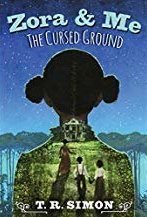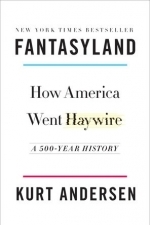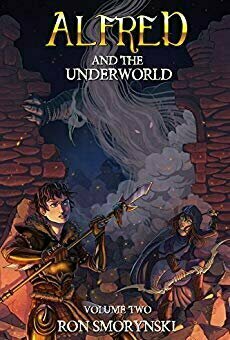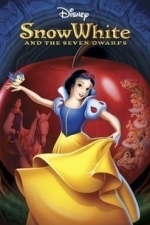Jesters_folly (230 KP) rated Mandy (2018) in Movies
Sep 25, 2019
The story is simple, Mandy and Red live alone in a forest. By chance Mandy is spotted by a cult leader who decided that he wants her to join him. Things don’t go to plan and Mandy ends up dead and Red starts on a quest for revenge. Simple and familiar, it’s not an uncommon plot, however Mandy is part film, part drug filled dream with snippets of animation thrown in, overlaid with a psychedelic, prog rock soundtrack. It has drugs, cults, demonic, slipknot esc bikers, (male) nudity, chainsaws and crossbows, religious parables and Jesus parallels. There is a metaphorical decent to hell and there is Nicholas Cage. All this is shot with constantly changing, coloured filters and distorted voices.
You can probably tell that Mandy isn’t for everyone, at times the film feels like an Italian horror, something like Suspiria or Deep Red and other time it seems like someone has brought a 70’s or 80’s rock/metal album cover to life. Throw in some animation that would be at home in ‘Heavy Metal’ Magazine, turn the crazy dial up to 11 and let Nicolas Cage (slowly) off the sanity leash and you have Mandy.
There are plot point that are not explained, for example Red suddenly has a friend who has a cross bow stored away for him and Red suddenly has a forge and knows how to use it. Is Mandy some kind of witch and, of course, is Red dead at the end.
I would say that there are some crazy scenes but the whole film is crazy but it does lead to some great scene’s like a chainsaw duel.
As I said, Mandy isn’t for everyone, it has a simple plot that has been turned in to a surreal nightmare so if you don’t like weird don’t watch this.
Mandy is also slow to get started as it builds up the atmosphere. I think that, if the film kept the atmosphere it starts with it could have been a similar tone to something like Midsommar however by the halfway point it has past that and, by the end the film just takes a head dive down the rabbit hole (almost literally).
Given all that I found it hard to rate, it has the feel of a 70’s horror and an 80’s grindhouse, some of the filters make it hard to understand some of the lines and the colour filters were disturbing and distracting although most of this was on purpose but over all I did enjoy it.

Jonah Lomu Rugby Challenge: Gold Edition
Games and Sports
App
AN INTENSE RUGBY EXPERIENCE!!! The ultimate iPhone & iPad rugby experience! Tru Blu Entertainment...

Jonah Lomu Rugby Challenge: Mini Games
Games and Sports
App
HEAPS OF FUN! The ultimate iPhone & iPad rugby experience! Tru Blu Entertainment and Wicked Witch...

Time Tangle - Adventure Time
Games and Entertainment
App
What time is it? Time to puncha some buns! Rip it up in Time Tangle! PUNCH STUFF Oh, snaps! Finn...

Rugby League Live 2: Gold Edition
Games and Sports
App
AN INTENSE RUGBY LEAGUE EXPERIENCE!!! The ultimate iPhone & iPad rugby league experience! Tru...
Debbie (52 KP) rated Zora and Me: The Cursed Ground in Books
Aug 24, 2018
Children's Fiction Middle Grade 272 Pages Release Date September 11, 2018 Publisher: Candlewick Press
<img src="https://www.netgalley.com/badge/9a41056d7201c045d3f9e5c161f9569494687ae1"; width="80" height="80" alt="Professional Reader" title="Professional Reader"/>
#ZoraAndMe#NetGalley
Okay now that I got all the information that Net Galley wants me to put onto each of my reviews I can now review this book.
I enjoyed this book a lot. I gave it 4.5 stars.
This book is about two girls named Zora and Me(Carrie Brown). They learn a lot about their little towns history in this story. The town is called Eatonville, Florida. This town is a color town meaning only color people live here. The town was established in around 1887.
This story takes place in the summer of 1903
Carrie is staying with Zora and her family while her mom is off working with a sick baby. One night it is raining and the neighbors horses get loose. This is unusual so the girls go to check on the neighbor, Mr. Polk who is a mute. They find him beaten up and go to find the healer who people claim to be a witch. They soon discover that Mr. Polk is able to talk but in a foreign language and not very often. The healer is Old Lady Bronson.
Here is the reason why I only gave the book 4.5 stars it went into a flash back and I it took me almost half way through the book to figure out why.
The story turns to the year 1855 and talks about a little girl called Lucia. This little girl is friends with a white girl named Prisca. Prisca Dad brings them both to Florida to marry a lady Miss Caroline. Lucia is made into a slave and having to learn about a new of way life. The book keeps flashing back every now and then to keep you informed about what happened.
I could tell you about the book but then you want to read it and I highly recommend that you do. Ms. Simon does a wonderful job telling the way the country was back in that time that needs to be told.
You will enjoy the twist and turns this story tells. You will not want to put the book down.
Zora loves adventures and can get into a lot of scrapes. They see a ghost or two and that is unnerving to them. One quote that I liked is when Zora says "I know you go anyway, even though you're scared and you're right it doesn't make you a scaredy-cat. It makes you brave."
You must read this book to your children and help them learn about our history because the schools are slowly fading out this part of history.
Caitlin Ann Cherniak (85 KP) rated Fantasyland: How America Went Haywire in Books
Oct 22, 2018
Don't get me wrong. This book has a couple of points, especially when he discusses religion and the Salem witch trails. However, when he starts getting into the more modern points of fantasy, either I didn't see it at all, or he was basically really poking fun at what the whole point of fantasy really is.
The title of the book is Fantasyland: How America Went Haywire. If he's going to use the word "Haywire" in a title, he better show pretty clear examples of why America is being flushed down the toilet. Poking fun at people cosplaying, playing video games, and being able to have fun at Disneyland or Disney World is not a point to say why America seems to be failing as a society. In fact, I can make a counterargument by saying that flights of fantasy in those contexts are actually forming the culture, not destroying it. Because of the evolution of entertainment (such as film, video games, etc.), it's easier to envision fantasy stories come to life. Before that, we had books, and no one was poking fun at books throughout this entire giant essay. Not only is that missing the forest for the trees, but it makes the argument of people being shown too much fantasy through visual mass media is a very shallow take on the topic of fantasy.
Also, the premise of the book talks about how people are arguing that Trump is ruining America because of his bullshit (and they're not wrong). I expected the book to discuss politics more in depth as a way to add onto the fantasyland argument. The book doesn't even do that, not even at the end when it "comes full circle" back to the Trump argument. If anything, the book kinda let it slide that it was for Trump and his radical ideas rather than finding flaws in them as people would expect. Look, if the book ended up explaining why Trump was trying to escape the Fantasyland argument, I'm all for reading that to make my own points. However, by just simply saying that Trump is being more realistic without any real reason, that also makes this essay a shallow writing. People want to read on why Trump has realistic views or not. If the point of this essay is talking about how fantastic ideas are plaguing a great nation, why not add that into the mix?
This essay was a real hit and miss for me. For something that's as thick as War and Peace, I expected this essay to have as juicy material as War and Peace, but it doesn't. It's just a 500 year rant on how "stupid" society can be, and that lost me as I finished the book.
EmersonRose (320 KP) rated Alfred: And The Underworld in Books
Nov 20, 2019
Alfred and the Underworld is the second volume of Alfred: The Boy King series by author Ron Smorynski. Published on November 2017, this book continues Alfred’s journey as the King of Westfold. After spending some time back with his mother in the human world researching and preparing, he goes back to his people. Things are not going well, and Alfred has a lot of work to do to help his people get back on their feet and defend themselves from the darkness that surrounds them.
In this book, Smorynski continues not only with this adventure-filled story but has continued to build up his fantasy world. Alfred encounters several new magical creatures, both good and bad around his kingdom. We also get a further building of the magical system and who has access to magic, which adds to the world and what is possible within it. Another interesting aspect was the history and politics that took a forefront position in this book. We are given a better grasp of the world outside of Alfred’s little kingdom. There are more players in the game now some that could be allies and some that have allied themselves with the evil in the land.
I really enjoyed that in this book we get to see different perspectives. While mostly told from Alfred’s point of view, we also get sneak peaks into both his mother’s mind and the enemies Alfred, and his people are fighting. This was interesting because these other characters are privy to information Alfred does not have access to and helps build the intrigue of the story. I particularly liked the chapters focused on Alfred’s mother. Through the excitement of Alfred building up his kingdom and the thrill of preparing for battle and defeating enemies, the mother is a reminder of a big picture and a deeper mystery. Throughout the first book we were given pieces of the life that she left behind when she brought Alfred to our world, and slowly those pieces are coming together.
I greatly enjoyed this book and am excited about the third book in the series Alfred and the Quest of the Knights. Alfred and the Underworld was an exciting, fun, and interesting story on its own, but it also set up nicely for the next installment. Between the big bad that is Gorbogal the witch and the truth bomb that was dropped on Alfred in the last sentence as a cliffhanger, this book as left me desperately waiting for more.
Phillip McSween (751 KP) rated Snow White and the Seven Dwarfs (1937) in Movies
Mar 5, 2020
Acting: 10
Beginning: 10
There’s some serious conflict going down in the castle and we come to learn that within the first ten minutes. The Queen is a real threat and we immediately come to worry about innocent Snow White who just wants to sing and be merry all day. I was immediately whisked away to this other place and time and I was excited for the journey.
Characters: 10
Still some of the best characters in film history. Having seven dwarfs with different personalities was genius! Sleepy was my dude! And there’s just something about Snow that really captivates me. She has a pure soul that inspires everyone around her, even the animals.
Cinematography/Visuals: 10
Conflict: 8
Entertainment Value: 9
Between the dwarfs, the fun musical numbers, and that cackling Queen, Snow White and the Seven Dwarfs kept me entertained from start to finish. Disney is a victim of its own success, however, as there are other animated movies I felt entertained me a wee bit more. That being said, this is a movie that could still capture and hold a kid’s attention today.
Memorability: 8
Pace: 10
Gets off to a pretty quick start and holds your attention from there. Even the songs aren’t wasted as they segment into the next important plot piece. The movie is a perfect example of rising conflict, then bringing the audience down for just long enough before hitting them again.
Plot: 8
My gripe with the movie’s plot is pretty small, but just enough to annoy me. I felt like the Queen went through A LOT of trouble just to turn into that witch only to give Snow an apple. At that point, if you want to kill her so bad, just make it happen right then! Classic case of a movie overthinking things and trying to be creative for the sake of being creative. Again, it’s small but too noticeable not to bring up.
Resolution: 10
Overall: 93
It always impresses me when classic films hold up today. I can imagine some of the older crowd might be offended by that just as if I might be offended if some young punk in 2035 is watching Jurassic Park and says, “Wow, this film is still solid to this day!” I get it, but I can’t help but admire a movie that is (as of this writing) eighty-three years old! Bananas. Disney came out of the gates swinging and hasn’t looked back since.
JT (287 KP) rated The Hunt (2012) in Movies
Mar 10, 2020
With such subject matter being so delicate it needed a careful approach as its something that is so true to life it can resonate with peoples moral views in quite a significant way. Lucas (Mikkelsen) is a nursery teacher, quiet and reclusive he lives alone trying to come to terms with the fact that he is not able to see his son as much as he would like to.
Lucas clearly has a fond affection for the children that he looks after, but his life is torn apart one day by a small white lie that sets the wheels in motion for a real life witch hunt.
The film is hard to watch at times and rightly so, it’s dealing with something that occurs in the real world and it can be stomach churning. But director Thomas Vinterberg gets to the heart of the matter quickly and in such a way that it creates compelling interest.
Former Bond villain and TV Hannibal star Mikkelsen is an exceptional centre piece as a loving father desperate for a way out, and in such a small environment it seems to be a hard task to accomplish. It’s at times like this that you know who your real friends are, and Lucas comes to realise that in the harshest of circumstances as he is slowly but surely chased down by a hunting pack of townsfolk.
How apt it is that Mikkelsen seen hunting deer in the forest at the start, now knows himself what that feeling is like as the hunter now becomes the hunted. It’s a film that genuinely makes you angry, your emotions are pulled one way and then the next as you try to put yourself in the shoes of a number of different people, but at the end of the day it comes down to one thing, guilty until proven innocent.
At the start we’re quite sure that Lucas is innocent, but there is enough in the narrative that at times we question ourselves in what is a slow burning story executed with the highest precision. The supporting cast are all brilliant, and do themselves credit to subject matter that must be hard to act against, especially when there are children involved.
People will do evil things when pushed to the limit by what they feel is right or wrong as the case maybe, and its a journey that Vinterberg takes us on in horrifying consequences.
The Hunt expels emotions such as paranoia, guilt and suspicion, all in a community bonded closely by long lasting friendships they have with each other. The closing scene proves that even after time has passed some things are gone but certainly not forgotten.





